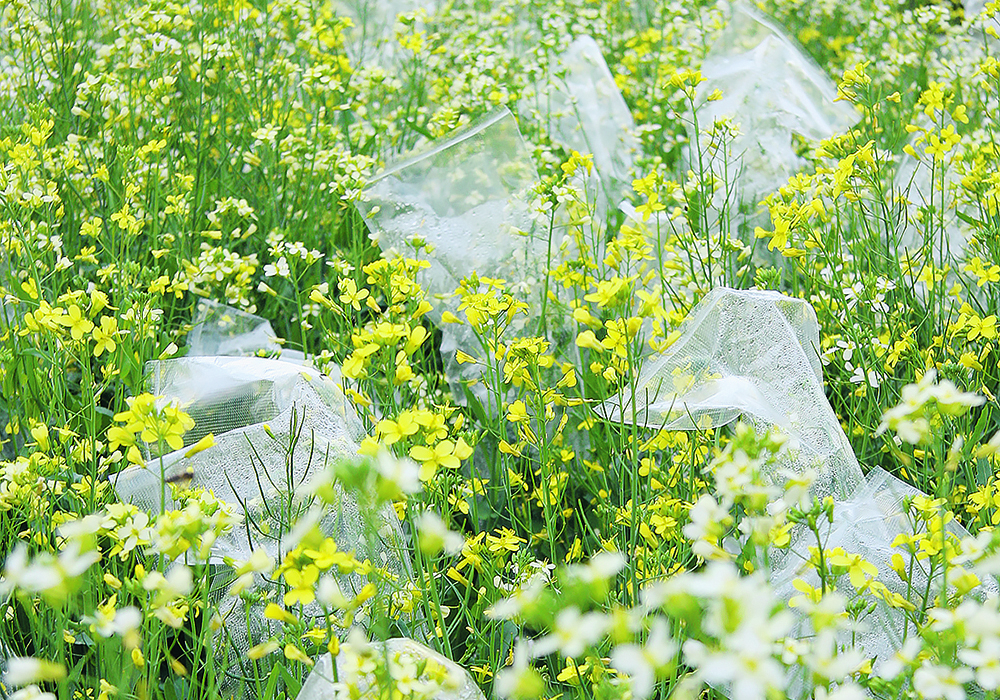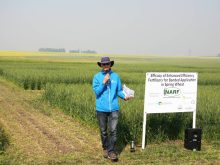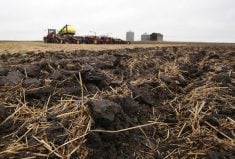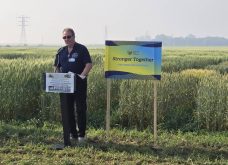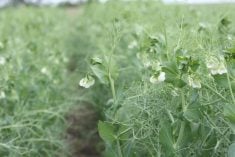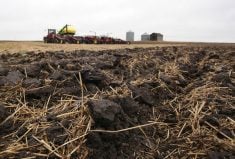WINNIPEG — Forcing every federally supported agricultural research project to involve climate change mitigation threatens farmers’ vital interests, leading agriculture industry stakeholders say.
“That lens is always ‘how is this going to help reduce emissions,’” noted CropLife Canada president Pierre Petelle in an interview during a farm meeting this winter.
Other stories in this Special Report:
- Research dilemma: crops or climate?
- Research priorities breed frustration, confusion
- Ottawa’s approach to ag research called ‘narrow-minded’
- New focus called gov’t blind spot
- More clarity urged for ag research requests
“We understand that that’s the mandate of the current government, but there’s a lot of primary research that needs to happen,” he said, noting Agriculture Canada and universities can play a role in funding initiatives that need more work before they can be commercialized.
Read Also

Alberta researcher helps unlock the economics of farming
Lethbridge Polytechnic researcher helping agriculture producers with decision-making tools in economic feasibility
Across the farming and agriculture industry, the message has been sent from federal departments and funding agencies: unless research projects are directly concerned with minimizing greenhouse gas emissions and reducing agriculture’s climate change impact, they are unlikely to receive federal funding.
The impact has been profound. Some researchers haven’t applied for project funds if they can’t see a way to dress them up as “climate change related,” sources say.
Farm organizations now wonder if other researchers are turning away from farmer-relevant research because available funding doesn’t support mainstream agronomic projects related to efficiency, productivity or resiliency.
Gayle McLaughlin, a Canadian Canola Growers Association lobbyist in Ottawa, said it is a struggle to retain government support for basic agricultural research amid the climate change focus and shrinking research budgets.
“It does create a challenge, of course, because certainly (climate change is important,) but we also have growing demand for canola so we need to be looking at this beyond just reducing emissions, and research is a critical component of that,” said McLaughlin in an interview.
Many people in agriculture want to see research money spent on reducing GHG emissions from farming. However, few want to see climate change research funded at the cost of essential farmer-focused research. Robbing Peter to pay Paul doesn’t seem fair to many.
“You should be spending dedicated dollars when there’s a dedicated priority like that,” said Tyler McCann, president of the Canadian Agri-Food Policy Institute.
“It’s unfortunate that the government didn’t come to the table and say, ‘we want to invest incremental dollars.’ What they did was they said, ‘we want to take the money that we’re already spending on research and development and contort it to make it (have) a climate focus’.”
The contortion of federal research spending priorities is amplified by the desire of university researchers, farmer organizations and others to get matching dollars for the farmer or public funding they can invest.
Sometimes matching is a requirement. Not only is federal funding turned almost entirely toward a climate focus, but it also swings much of the farmer and public research that way too. Some projects never get off the drawing board if they can’t get federal funding.
Petelle said he and other industry leaders were told on a call with a former federal agriculture minister that “unless there’s a direct tie to emissions reduction, I don’t even get an audience (with those who control the purse strings within government.’)”
Concerns about the narrow focus of federal agriculture research, and denial of general agricultural research as beneficial for climate change mitigation, has been raised repeatedly with federal officials. It’s popped up as a concern within Parliament as well.
“The Senate of Canada can elevate and amplify the issues. We can’t do anything about it,” said Senator Rob Black, who has highlighted the issue in Parliament. “I take every opportunity to raise that issue.”


